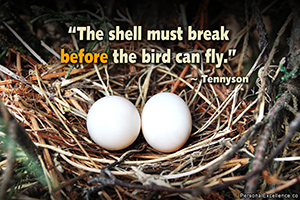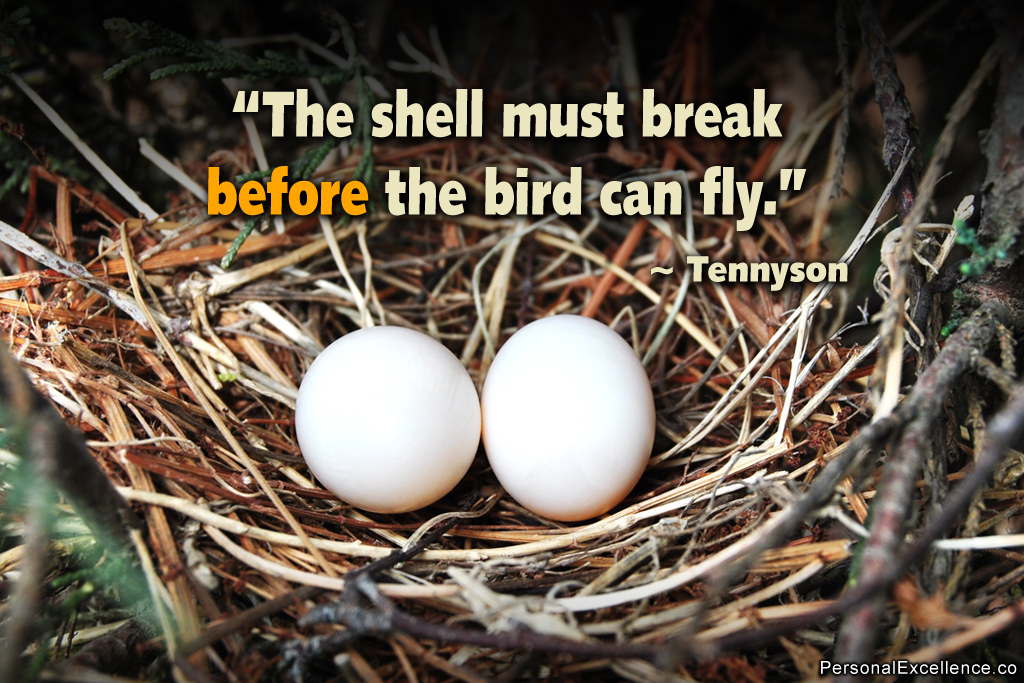
Do you have times when you feel lousy about yourself? Times when you hate yourself or just feel that you’re worthless?
I have these moments, and if you do, I want you to know that you’re not alone. More importantly, I want to share with you tips to deal with such debilitating moments of negative self-worth, so that you can gain strength to continue in your journey and not feel like you need to struggle by yourself. ![]()
In this episode of The Personal Excellence Podcast, I share 6 tips to deal with moments of negative self-worth:
- Tip #1: Forgive yourself [01:42]
- Tip #2: Everyone is struggling [04:27]
- Tip #3: Stop subjecting yourself to impossible standards [07:15]
- Tip #4: Do something that makes you happy [11:21]
- Tip #5: Identify trends in what’s making you feel negative [15:24]
- Tip #6: Recognize you are complete [22:27]
Listen to the podcast via my online player, Apple Podcasts, Spotify, TuneIn, Amazon Music, or subscribe directly to my RSS feed.
If you've found The Personal Excellence Podcast useful, I'd really appreciate it if you can leave an honest rating and review on iTunes. Your review makes a difference and will help spread the message of conscious living to the world. Thank you!
How To Deal With Moments of Negative Self-Worth [Transcript]
Welcome to The Personal Excellence Podcast. The show that’s all about helping you be your best self and live your best life. Now, your host, Celestine Chua!
Celestine Chua: Hey everyone! I’m Celestine Chua from PersonalExcellence.co.
Today’s podcast is about how to deal with moments of negative self-worth. I don’t know about you, but there are times when I deal with debilitating moments of negative self-worth. These moments may not be common, but there are times when they surface. During such moments, I just feel like I’m worthless, I’m doing a lousy, crappy job, or I just hate myself.
I’ve found that such moments can happen when I feel like I’m not doing a good job, or I feel like I can be doing more, or bad incidences happen and I feel beat myself up over them.
There are times when we feel down and out. I want to let you know that it’s normal. It’s okay. There’s no need to feel ashamed of feeling this way. In today’s episode, I want to share simple tips on how to deal with moments of negative self-worth and to feel better about yourself.
1) Forgive yourself
My first tip is to forgive yourself.
So, I’m not sure about you, but I have times when I fault myself for not doing things the best way, or not handling situations in a way that is in line with my 100 percent ideal definition. These don’t have to be some serious incident but just very small little things that I’m sure nobody remembers or thinks about.
But I would just think about them later on and think about how I could have handled something in a better way or dealt with one small thing in a better manner, that could have perhaps improved that overall situation.
But I’ve learned that it’s about forgiving myself. Forgiving myself for any shortfall vs. my expectations. Recognizing that whatever I did or didn’t do, I’ve already done the best that I could within that situation, within that context. And it’s about learning from the experience and working to be a better me.
Perhaps for you that could be something you’re faulting yourself for. And because of this, you feel these moments of negative self-worth. If that’s the case, is it time to start forgiving yourself? Forgiving yourself for any shortfall. Recognizing that you have really done the best you could within the circumstance, within the situation. And to focus on learning from this experience and moving forward to be a better you.
I know that forgiving yourself can be a tricky process especially if you’re dealing with some deeply embedded experiences. This is where I encourage you to use my brain dumping exercise at personalexcellence.co/blog/brain-dumping/
You can do this exercise and just ruminate over the question of, “What am I blaming myself for?” or “What am I faulting myself for?” Type out for like 10-15 minutes and see the answers that come out from there.
This is a great process to get insights into your inner psyche and to understand the thoughts, the emotions that you may not be privy to before.
2) Everyone is struggling
My second tip is to know that everyone out there is really struggling and fighting their own battles.
Sometimes we may think that everybody out there has everything together and that we are the only lousy person not doing things well, or we have so many things not accomplished and we’re lagging behind in this race called life.
But I want to remind you guys: All of us here, we are struggling in our journey. There’s nothing to feel bad about, say, goals that are not accomplished yet, or things that we’re not doing well in. Because it’s by having these things that we continue to have areas for improvement, that we continue to learn and grow, and to find joy in this life’s journey.
One big area which my clients tend to feel bad about is when they compare themselves with other people. This comparison may not be overtly done. It can be an implicit comparison where they could be looking at other people in their domain or circle who are doing extremely well, and then they beat themselves up for not doing as well or not being as accomplished in their goals. That, of course, leads to a negative self-worth.
But there’s really no need to do that. Because you’re not in a race with other people. You are on your own journey to be the best possible you, bar none. So there’s no benchmark for comparison, as much as it is you compared with who you were yesterday, or who you were a month ago or a year ago, and whether you have improved since then.
Also, whoever you’re comparing with, what’s to say that these people are not struggling with their own problems? I’m telling you that there is a very high chance that they are also struggling with their own issues. Of course, nobody’s to judge. Everybody has their own problems. But it doesn’t mean that just because someone seems to have it all together, or someone seems to have every single accolade or accomplishment, or material achievement, that they would be very, very happy with their life. That’s not the case at all.
Ultimately what’s most important is that you are happy in your own journey and you’re constantly working to be the best possible you vs. just comparing with people.
3) Stop subjecting yourself to impossible standards
My third tip is to stop subjecting yourself to impossible standards.
I recently wrote a perfectionism series, and you can check it out at personalexcellence.co/blog/perfectionism/. In the series, I share the downsides of neurotic perfectionism, as well as eight tips to address that. I feel one of the big issues of neurotic perfectionism would be constantly having impossible standards for yourself, and then [negatively] subjecting yourself to these standards.
I have a few clients, and some of them can be very neurotic perfectionists. Sometimes they are very unhappy and a lot of it is self-imposed unhappiness. Because they keep comparing themselves with extremely high standards, and subsequently, beat themselves up and feel so unhappy over them. While I think that having high standards is great because that helps push you to grow, if your high standards are making you feel unhappy and miserable, then it is time to review the situation. If your standards, as opposed to supporting you in your growth and fulfillment in life, they’re instead making you so unhappy and miserable, is it time to review what’s happening?
Of course, there’s another issue altogether which could be your attachment to your expectations. Because it’s one thing to have expectations to be this and that, and it’s another thing to feel lousy and worthless when you don’t achieve those expectations. The latter comes from attachment with your expectations.
- Firstly, review your standards. Maybe you have standards that are just inherently not possible for any human being to achieve. It could be, say, doing a particular task without any errors, when it is perfectly normal to have errors. We can always address those areas or revise them and that’s perfectly fine.
- Secondly, let’s say your standards are sound and fair. Then it could be reviewing your attachment with your expectations. Because you should never ever feel bad even if you don’t achieve your expectations. Even if you don’t achieve your expectations, it’s about reviewing, okay, what went wrong? Why wasn’t this achieved? What could you do to improve and increase your chances of achieving that target next time?
So not subjecting yourself to impossible, inhumane standards. And not attaching yourself to your expectations. That is extremely important.
I find that one big problem perfectionists have is sometimes they attach themselves to their expectations, and they associate their worth with whether they are achieving their targets or not — which is not true. Your worth is what it is. You are perfect. You are complete. You are who you are. By no means should your worth be linked to whether you’re achieving your targets or not.
So that is incredibly important. It is very easy to forget that and to think that when we don’t achieve a target, that we are worthless, that we’re not being good enough. But that’s not the case, alright? When you don’t achieve something, that is an event, that is what’s happening on the outside. But our worth, what’s on the inside, that never changes, and that’s always complete as itself.
4) Focus on what makes you happy
My fourth tip is to focus on what makes you happy.
Sometimes it can be a cyclical scenario where you just feel negative. And then after that, you can be doing something that makes you feel worse. And this thing could be heading out to buy junk food. It could be drinking. It could be smoking if you have a smoking habit. It could be hanging out with toxic people. Or it could be drowning in your sadness alone at home, and then watching drama series or surrounding yourself with negative things. And that’s not good.
I would encourage you to break that cycle. Just start off by doing something mildly positive or that makes you happy.
For example, years ago when I had my emotional eating problem (that I talked about openly on my blog) — looking back, I realized that whenever I felt upset, I would head straight to eat some junk food or just eat in general.
In those situations, what I was doing was using food to fill myself up, to make me feel better. So in a sense, food was my companion. It was the agent that made me feel worthy. I could be just eating by myself for a while and after that, I would feel “strong” enough to face whatever problem I was facing.
Of course, looking back, that was the wrong way to go about doing that. Because after binge eating, I would feel totally upset with myself. I would beat myself up over it. So in fact, I in a way felt marginally better than before because I was very upset and in a very low-consciousness state to be reaching out for food. But after eating, I would feel bad for putting all that junk into my body, and now have to deal with the extra calories that I just loaded onto my body! Not to mention, possibly irreversible health damage when you keep emotional eating for an extended period of time.
So obviously, that didn’t solve the problem at all. At the same time, it may be tricky to dive into the undercurrent, the roots causing you to feel bad or negative. I’ve found from all the years of coaching that these can go really deep, they can go way back, and it may be tough to deal with these in a one-off scenario.
Instead, what I would recommend is to just do something that makes you happy. It can be a very simple thing. I’m not asking you to go into some deep psychoanalysis and uncover the three biggest reasons causing you to feel unhappy or feel worthless. No, I’m just telling you to do something simple.
It can be letting yourself relax. It can be playing your favorite game. I’m not saying to play the game for 20 hours, I’m saying just to play it and make yourself feel better. It could be just messaging a friend, to ask how is that friend doing. It could be reading your favorite websites or watching your favorite YouTube channel.
So very simple things. I’m not asking you to do something that is huge and requires a lot of intellectual analysis because I know sometimes when this is expected, some of you may feel that it’s very intimidating. Just do something happy. Even watching your favorite movie. This is something that you can do, that can just make you feel better in a matter of minutes, if not half an hour and an hour.
5) Identify trends in what’s making you feel negative
My fifth tip is to identify what’s making you feel negative.
Sometimes there may be trends in what’s making us feel a certain way. The tips that I shared earlier, they definitely help us feel better. But ultimately it is important to understand, are there some recurring trends [in what’s making us feel negative]? And if there are, how can we reduce or eliminate them?
My Pattern #1: Facing negative people
For example, I’ve found that I tend to be very sensitive to people and their reactions. That’s part of what helps me in my work. It’s because by removing or lowering my barriers — because all of us have natural barriers towards people, it makes any sense at all. For myself, through the years of my work, I’ve learned to open up all my conduits to people. That means when people say something, I process the information thoroughly and fully. When I’m with someone or speaking to someone, I just soak into everything a person has to offer.
So one pattern that I noticed is that — some of the moments where I have feelings of negative self-worth, they tend to be triggered by people who are being negative. This could be people who are just being rude or insensitive, or where there’s some incompatibility in values or consciousness.
And there isn’t like one particular person, but it could be different people. It could be random people or acquaintances, or even customer service staff. While I can easily raise my guard and ignore such situations — which I would, after the encounter — my personal preference is to communicate with people in an unguarded way. To be my authentic self. To connect with people on a deep level, even if it’s a frontline staff.
Because of that, for me, I would prefer to stay away. Create a distance between people whom I have found incompatible in terms of attitude or values or just the overall consciousness level. Maybe someone who is angry or negative, that wouldn’t be a strong fit in terms of compatibility.
It could be as simple as knowing a particular eatery or restaurant where the customer service tends to be quite bad, where maybe the staff are a bit judgmental or give preferential treatment to a particular race or gender. So then, I would stay away from these places and instead patronize the eateries where I already know the staff and I know that they’re fantastic, they’re great. I go there, I feel good, I have a great time with them, and I also support their business. That works great for me, in terms of maintaining a positive level of emotions and a positive consciousness level.
My Pattern #2: Not achieving my high standards
Another pattern that I noticed — when I was reviewing what was causing me not to feel good, I realized [my negative self-esteem] came from not matching my personal targets with my to-dos.
Some of you may be able to relate to that. Maybe you find that you have certain expectations. You want to complete certain things but you haven’t. And when that happens, you beat yourself up over that. So I can relate to that.
When I reviewed this, I realized that there were two ways for me to handle this:
- One way was that I was having unnatural expectations in terms of the work that I wanted to be completed. I needed to address that. So then, it was about adjusting — not necessarily lowering — but adjusting. Adjusting to a target which was more in line with what I could offer, and still have adequate time for personal rest and relationships.
- The second thing was to review my processes. Going for the 80/20. Not going for the diminishing returns. So revising and addressing the way that I was doing things.
This made things easier. It relieved a lot of the tension and pressure that I was putting on myself.
For you, think about this: Are there any trends when you feel negative, down, or low in self-worth? Note down these times when it happens. Create a simple post-it note on your mobile phone or create a draft email to yourself. Just do a simple note on: When did you feel negative (when you feel negative)? What happened to make you feel that way?
Make it a habit to jot this down every time you feel this way. Over time, you will have a compilation of such notes. This is when you can start to see, okay, has there been any trend in why you’re feeling this way? Do you feel this way after interacting with a particular person? Or do you tend to feel this way on a particular day of the week where there’s an event or some situation that you’re in?
So try to understand: Is there a trend or pattern that is going on? Because when that happens, you can accurately pinpoint what’s causing you to feel that way, and subsequently address that. It could even be when you look at others’ websites or blogs in your same domain [of work]. After a while, you feel bad and negative. And when you really think about it, it’s because you are seeing other people doing well, but you don’t feel like you’re doing as well. So then, it could be triggered by when you see others doing better than you.
When you identify these factors, then you can deal with them. For example, if it’s triggered by comparison, I have an article on how to stop comparing at personalexcellence.co/blog/comparing/. Or if it’s triggered by scenarios where you feel like a fraud, I have an article that deals with that as well. That’s at personalexcellence.co/blog/impostor-syndrome/. In that article I go into a lot more depth on how to deal with such emotions and I recommend you check them out.
6) Know that you are complete
My sixth tip is to know that you are complete.
I know that a lot of us probably feel that we are not good enough, that we are inadequate. On the Internet these days, there are just so many things that are over glamourized, over-edited. A lot of flaunting of perfect images.
There are businesses trying to sell you something, and in the process of selling you something, they’re painting that perfect life, that perfect image.
There are celebrities, internet personalities trying to express or “show off” that glamorous side of their life. And sometimes they may be doing that on behalf of their sponsors.
Everyone’s closer to each other more than ever online. So one click away, you can be seeing this person who is so successful, this internet personality, this YouTuber, this blogger, who seems to be having it all. And it’s very easy to feel inadequate because of that.
I just want to let you guys know that no matter what you’re seeing out there, no matter what people may have you believe, you are already complete. You are already full as a person. You are beautiful, you are amazing, and you are just perfect as yourself. You don’t even need a reason as to why you are perfect or complete. It’s because you just are.
All of us, when we were born into this world, we were already born complete as ourselves. It’s unfortunate that over the years, as we were growing up, we were exposed to media. Not to say that the media is evil or that our problems are all caused by the media. The media is nothing but a tool, and it’s really the message that marketers or businesses are sending through the media that makes us feel a different way.
And the messages that we see from the media, in our era, they happen to be a lot of idealized images, “perfect” photoshopped images, or perfect lives. A lot of times this is created to sell whatever it is that they want to sell, or pitch whatever the message that they want, with a particular agenda behind that.
But you are already perfect and complete. You have always been since the day you were born. So if for whatever reason, there is someone or something making you feel inadequate or not good enough, then maybe it’s time to create some distance or to take a step back.
Evaluate who you follow online: Do they make you feel positive or negative?
For example, let’s say you follow certain blogs, YouTube channels, or online personalities. You find yourself often feeling inadequate or uncertain about yourself when you are following them, when you’re seeing their updates or their material or content.
It could be, say, because part of their material being driven to a project a certain image of perfection, and that makes you feel that gap with them. It could be part of their message or brand strategy — whether implicit or explicit — it’s just one where they uphold and perpetuate a certain ideal image. This image may not be very healthy, it focuses on the fact that perfection is only one dimension, that everything else isn’t perfect, and anybody who doesn’t conform to this vision is not adequate or not beautiful, or not whole or not complete.
This may not be something that’s explicitly said but can be felt or seen when you observe all the little things that are done, the images, and the messages coming together.
This inevitably drives feelings of inadequacy, of not being whole, of negative anxiety, that you feel like you must quickly do something to correct yourself or to address a certain “flaw” or “issue” that you have, as opposed to it being something that you’re doing out of a genuine desire for betterment — independent of fear, anxiety, or negativity. Or just feeling like you need to be something in order to be considered whole, perfect, or beautiful.
In these cases, it is good to evaluate: Is this connection compatible with you? Perhaps it’s not. Perhaps this material that this person is churning out makes you more fear-based, makes you more anxious about yourself, or feel that you are inadequate or incomplete. And that is not what you want. In these cases, maybe it’s good to assess: Does it really serve you to follow this particular content creator? If not, just unsubscribe and channel your attention onto other resources that are more conducive for your growth.
How about your relationships?
Or it could be, say, certain relationships, certain friendships. You find that out of all the times you hang out with these people, you feel more negative than positive. When that happens, that probably suggests that this relationship may not be compatible anymore. So it may be time to evaluate if this connection is serving you as well as your friend.
Say it is a family member. I know how you deal with this problem, where you have a family member who may sometimes make you feel less than adequate about yourself. What helps is creating some distance. So sometimes if there’s a very strong conflict or unhappiness or frequent arguments, I find that just creating some distance — so instead of communicating so frequently — reducing the level of communication, that can help. The cliche sometimes is true, that absence makes the heart grow fonder. I don’t necessarily agree with this in all circumstances, but I find that sometimes if there are very heated emotions, creating some distance for a short period of time, it does help each other to get some perspective.
Assert yourself if necessary
Or it can also be asserting yourself. I have one coachee in a course last year and she did this with her mom. She said that sometimes her mom may give snide or negative comments. What my coachee has learned to do is not to acknowledge or respond to those particular comments. Over time, her mom has learned not to repeat or reiterate those comments that may not be so positive.
It’s great because fundamentally what you react to, it will oftentimes perpetuate that situation. If that’s a particular behavior you don’t agree with or you don’t like, sometimes simply ignoring or not responding to it, it can send the message across. In that, you are not engaging with this because you do not believe in this. That’s especially if you tried to argue against that or make your point, but none of these have worked. Then perhaps just ignoring and not giving your energy to these situations, it can help. And then choosing to respond to the things that are more positive and conducive to your connection and relationship. That can over time really help move the conversations to a more positive level.
You are complete ❤
So remember that you are complete and you should never ever think otherwise. We have always been complete since we were born and it’s unfortunate that we kept receiving messages through time that suggested otherwise. That we need to look a certain way to be considered beautiful. We need to be at a certain weight to be considered adequate or handsome or attractive. That we need to have certain accomplishments to be acknowledged as worthy people. None of that is true.
We aim for accomplishments because we want to be better versions of ourselves. Because we take pride in improving our own skills, in acquiring results for things that we believe in. But in no way should you aim for a certain target or result because you want to feel more worthy or more adequate.
Targets and goals like these, they will eventually to a cyclical pattern. Where you continually do things like that just to feel worthy. There will never ever be a situation where you truly feel worthy about yourself until the day you acknowledge that you have always been worthy, you have always been complete, and you have always been beautiful and perfect. And you do not need any extrinsic achievement, praise, or acknowledgment to feel this way. In a way what I’m doing right now is simply reminding you of what you already have all along. :)
Closing Note
I hope you found today’s podcast helpful.
If you have found today’s podcast useful in any way at all, I would truly appreciate it if you could just take a few seconds of your time to leave a positive rating on iTunes. That would really mean the world to me. And it’ll also help share The Personal Excellence Podcast to more people out there and to support everyone in becoming the best them.
For more on improving your self-worth and boosting self-confidence, check out my self-confidence article on PE, which is https://personalexcellence.co/blog/self-confidence/. I have a self-confidence manifesto that you can download and print out for free, at https://personalexcellence.co/blog/self-confidence-manifesto/
Thank you so much for listening and I look forward to speaking to you guys in the next episode. Bye guys!
Endnote: Thanks for listening to The Personal Excellence Podcast! For more tips on how to live your best life, visit www.personalexcellence.co
Related Resources:
- My Brain Dumping Exercise
- Be a Better Me in 30 Days Program
- How To Overcome Perfectionism (series)
- Why You Should Stop Comparing Yourself With Others (And 3 Steps To Do So)
- 7 Tips to Overcome the Impostor Syndrome
- How To Be The Most Confident Person In The World
- The Self-Confidence Manifesto
(Image: lauren rushing)









 Thanks for reading. If you like my free articles, join my private email list and get my latest updates and articles sent right to your inbox.
Thanks for reading. If you like my free articles, join my private email list and get my latest updates and articles sent right to your inbox.